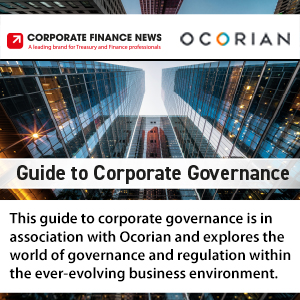Aston Martin has issued a profit warning for its full financial year, as uncertainties around tariffs have continued to impact the firm’s finances.
The luxury car manufacturer stated that in its third quarter, it delivered 1,430 wholesale units, which was below its guidance range. This range was broadly similar to the number of units sold in Q3 2024, which totalled 1,641.
Aston Martin said this shortfall was due to weaker than expected demand in both North America and APAC, including greater China.
The firm added that its Q3 2025 financial performance will reflect the impact from fewer than expected wholesale volumes, combined the expected negative mix impact of fewer special deliveries.
The latest update comes as the car manufacturer confirmed that production has begun on its new Valhalla model, with deliveries expected in Q4.
In its outlook, Aston Martin said that the global macroeconomic environment facing the motor industry "remains challenging", with uncertainties around the economic impact from US tariffs, changes to China’s ultra-luxury taxes and the increased potential for supply chain pressures, particularly following the recent cyber incident at Jaguar Land Rover.
It stated that it now expects its EBIT to be below the lower end of market consensus, which was set at a loss of £110m. However, it expects its profitability to “materially improve” year-on-year in the 2026 financial year.
Aston Martin said that it has initiated an immediate review of future cost and capital expenditures, which will also include a review of the future product cycle plan in response in market and regulatory dynamics.
Head of markets at AJ Bell, Dan Coatsworth, said that while tariffs are a "massive headache" for the car industry, Aston Martin’s issues "go way back" before President Trump’s announcement in April, adding that sympathy for the company is "thin on the ground".
He concluded: "The roots of Aston Martin’s profit warning lie not just in supply chain issues but also weak demand. This in turn raises questions about the brand’s appeal in a difficult economic environment. Aston Martin seems to lurch from one wrong turn to another, making a mockery of comparisons with Italian super car brand Ferrari at the time of its October 2018 IPO.
"Perhaps the biggest warning light on the dashboard is the fact that Aston Martin no longer expects to achieve positive free cash flow in the second half of its financial year.
"While the sale of its stake in the eponymous Formula One team has bought it some breathing space, achieving sustainable cash flow is essential if Aston Martin wants to generate any level of credibility with investors. Management’s suggestion that profitability and cash generation will increase materially next year as Aston Martin launches its Valhalla hybrid supercar will be received with considerable scepticism given the track record to date."
© 2019 Perspective Publishing Privacy & Cookies








Recent Stories